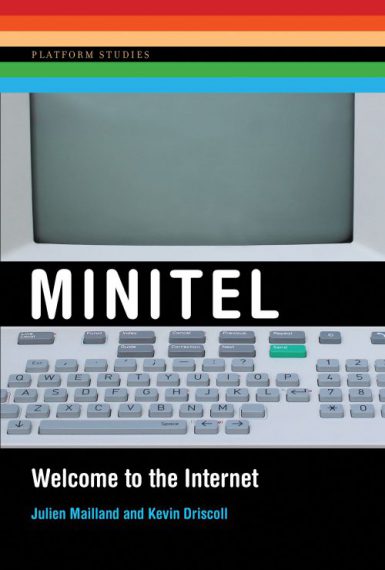Mailland book explores French network Minitel

By the time the average American was beginning to grasp the concept of the internet in the early 1990s, French citizens already were veterans of the medium, emailing, chatting and researching their way through a government-run network called Minitel.
One of those citizens was assistant professor Julien Mailland, who began using Minitel as a 10-year-old in Paris. Now he’s written a book on the subject, coauthored with Kevin Driscoll of the University of Virginia and published by MIT Press.
Minitel: Welcome to the Internet explores Minitel as the first mass-scale online system and as a successful model of a state-run enterprise, spurring technological and socio-cultural advances relevant to current internet challenges and policies.
“A lot of countries did experiments like this in the ’70s and ’80s, but the French one is significant because it was the only one adopted on a mass scale,” Mailland said. “Many of the policy and business issues we face now with the internet, we faced back in the ’80s in France. There are lots of lessons to be learned about what kind of policy produces which results.”

Minitel was launched in 1983 via free terminals available to all telephone subscribers, who paid for data usage. It introduced users to early forms of email, e-commerce, chat, research, game playing, blogging and even online pornography.
As a teenager, Mailland used Minitel for white/yellow page searches, for occasional gaming and for buying concert tickets. The first online purchase he ever made was in 1991 for a ticket to a Dire Straits concert. As a student, he was required to use Minitel to register for university. He also had to use it when he registered for the draft.
The service ended in 2012, by which time the internet long had provided a much cheaper and more sophisticated alternative.
Mailland likened Minitel’s operations to those of the Apple store, where Apple manages the interface between app creators and users for a percentage of revenue. The difference, he said, is that Apple, as a private company, can arbitrarily exclude a service provider for social or political reasons.
Minitel, on the other hand, was subject to constitutional and administrative protections that ensured users had access to the widest possible variety of services.
One of the policy lessons that might be learned from Minitel, Mailland and Driscoll say, is that targeted government regulation sometimes can be beneficial. That’s an idea that is antithetical to what Mailland calls a Silicon Valley myth: that all private enterprise is good, and all government regulation is bad.
“What we’re doing with the book is providing data to show that in some instances, regulation can bring more freedom,” he said.
Mailland said articles he and Driscoll have written on the topic have provoked mixed responses.
A piece Mailland wrote for The Atlantic, “Minitel, the Open Network Before the Internet,” produced “a flurry of trolls” criticizing the state-run system and its now-primitive technology. Other commenters responding to the article and to two other pieces — “Minitel: The Online World France Built Before the Web,” in IEEE Spectrum, and “Before The Internet, There Was Minitel,” in 52 Insights, praised Minitel as innovative and “net neutral” ahead of its time.
Mailland said the book is meant to provoke such debate.
“We are hoping to bring attention to the Minitel experience and encourage critical thinking,” he said. “We are not celebrating Minitel; we are looking at an interesting artifact we can learn from.”

